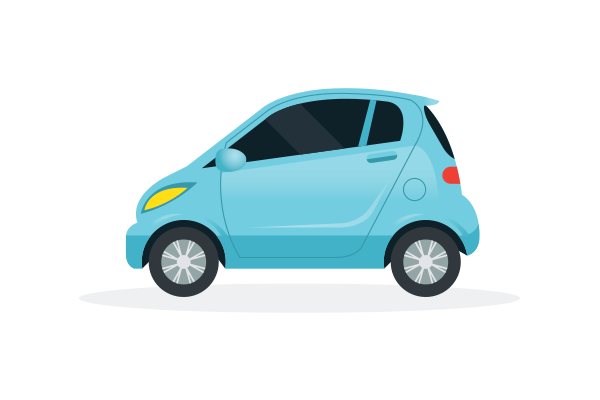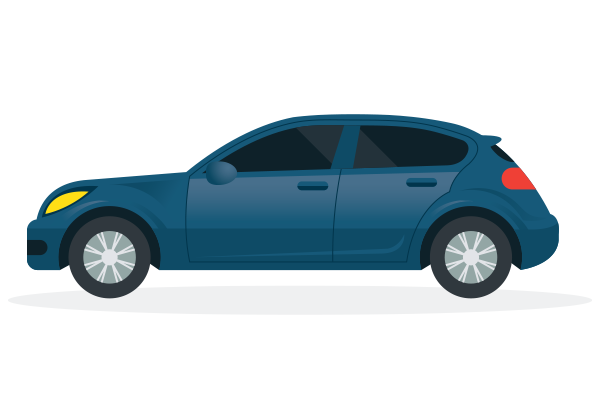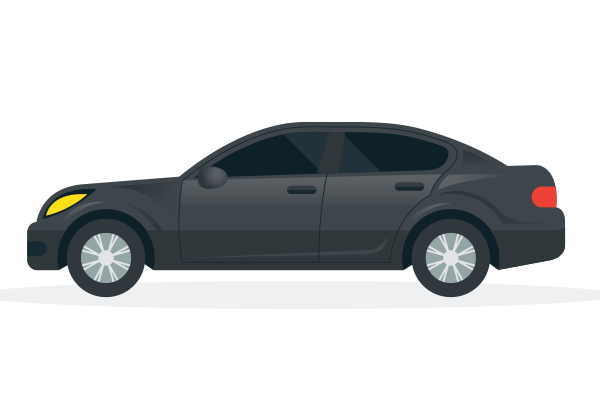
Credit History is extremely important and provides insight into how you have managed your credit in the past. If you are looking at a new car lease or subscription, bank loan or even mortgage, it will be used by the companies to see how creditworthy you are.
What is Credit History?
Your credit history is a record of your credit activity in the past. It shows whether you have paid your bills on tome, how many credit cards you have and how much credit you have available vs. used, the types of credit you use and the amount of overall debt.
Essentially this is called a Credit Report.
Credit reports contain the information about how you use your credit accounts, you payment history and even your balances. They also help to identify who you are, where you have lived and any fnancial assoications you may have with partners or family members. Credit reports also give details about any county court judgements (CCJ’s), debt collections or bankrupticies you may have, they may also show if you are within an individual voluntary arrangement (IVA). The ywill also show how many credit checks you have had and what they were for.
In the UK there are three main Credit Reference Agencies (CRA’s):
It is worth noting that all of the CRA’s record the credit data in the same format and not all companies report to them all.
Each CRA uses its on scoring formulas, this is usually a score out of 999 but can differ from firm to firm.
The formula used by the CRA looks at your history and generates the credit score, the higher the number the better your chances are of getting accepted by the credit company. As each CRA uses its own mathematical equation, the scores may differ from each other but they all have the same job; to predict the likelihood of you repaying the debts.
In most cases when you request a credit report, the score will not be shown. However, Experian and Equifax do show an indication of what your score is. It is also worth mentioning that the company credit checking you for credit services may see a different score to what you see, this is because companies tailor there credit checking services to score for their particular service or product.
Why is credit history important?
Lenders use your credit history to help them approve you for a financial product or service, it may also indicate affordability and the chances of you being able to meet the terms of the agreement. Depending on the product, your credit history may also determine the interest rate of a loan or hire purchase agreement.
It may also be common place for certain employers to check your credit history, especially if you are working in the financial services sector so having a good credit history might help you seal that new job role.
If you have no credit history or it is limited as you’ve never had credit (especially if you are 18 years old), you will likely be declined for a financial product/service as you have insufficient credit history.
If you have a long history on your credit report, with all payments made on time, limited use of available credit or you have a mortgage, the likelyhood of being accepted is high, but not guaranteed.
It is easy nowadays to see the full picture of your credit reports and you can order these from the CRA’s for a small nominal charge. There are also app’s and online services available with free trials that let you see your credit report on a regular basis, some of which offer free trials.
It is really important to review your credit reports on a regular basis, it helps you see where you can improve and helps you spot any errors or incorrect information.
Tips to help improve your credit report
Here are a few tips to help you improve your credit history, it is also good to read websites written by people such as Martin Lewis’ Money Saving Expert to help you with some further hints and tips:
Pay Bills On Time
Your payment history on your credit report will show whether you pay your bills on time and within terms. Paying your bills on time makes up a huge percentage of your credit score.
Keep Credit Cards Lower
Your credit report shows the amount of available credit you have and the amount you are currently utilising. The closer you are to credit limits the lower your potencial credit score will be. As a goal it is best to use know more than 25% of your available credit.
Never pay minimum payments
If you have credit or store cards, make sure you never pay the minimum payment as this can go against you with many of the CRA’s showing that you have only met the minimum payment. If your minimum payment is £20, consider paying £30-40 to cover this.
Keep your old credit cards open
If your old credit card hasn’t got any annual fees, then keep it open. Companies credit checking you like to see historic payment history and the longer you have a credit account, the better your score.
Keep credit checks down to a minimum
Don’t make lots of credit applications in a short period of time, this can have a determental effect on your credit score. Things like utility bills, mobile phone contracts, current accounts, car leases, mortgages, insurance and credit cards can all make an impact on your credit report.
Have different types of credit
Having different types of credit can help with your credit report. Usually credit cars, which are classed as revolving credit aren’t deemed positive. If you have a credit card balance, it may be best to use a bank loan to pay this off as it shows the companies that you are looking at paying this off. Mortgages are positive for your credit report. Don’t dismiss mobile phones as these can show that you have a regular bill that is paid on time and in full on a regular basis.
Electoral Roll
Make sure you are registered on the Electoral Roll, this can have a huge effect on your credit score and will help show a history of where you live and previous addresses, that can match with your financial links.
Conclusion
Your credit history is really important to lenders to show how well, or not, you have managed your credit finances. Lenders will see this record on your credit report which will contain information on all your accounts and the payments made against them. It will also provide lenders information if you have IVA’s, CCJ’s or you have previously been made banrupt.
It is really important to check your credit report on a regular basis, this will help you spot any errors and may also give you an understanding of your borrowings.
Your credit score is always important when it comes to companies providing credit, the higher the score the better your chances.
Frequently Asked Questions
Your credit report is a narrative of what credit accounts you have and how these have been managed by yourself. It will show how many accounts you have and how much of the available credit you have used.
Credit scores use calculations to provide an overall credit worthiness. The higher the score the better the chances of you being accepted.
Good credit history means you have a positive credit report showing that you are responsible with your credit accounts, paying bills on time, not using too much available credit and that you haven’t got arrangements such as an IVA or you have CCJ’s.
Sometimes in life, people may not have needed any line of credit. Opting for Pay As You Go mobiles instead of contracts, saving for applicances instead of taking them on financing or renting a house instead of buying one.
It can be a shock when you get a decline as you may not have ever been in any money troubles, but you don’t qualify for credit.
There are a few ways of getting a credit history and would use sources such as Money Saving Expert to give you some ideas on how to get this started.
If you are moving to the UK from abroad, getting credit or even a bank account can prove very difficult. If your home country bank has an outlet in the UK, that would be the first call you need to make to see if they can assist.
We deal with Expat’s at Cocoon Vehicles providing them with car subscription and lease services. We do this utilising our experienced underwriters and we can carry out credit checks in your home country.
Most of the information on your credit report will remain on there for up to 6 years, if you have been made bankrupt this could be longer.
Lenders usually provide information to the credit reference agency’s (CRA’s) monthly, but the frequency mat vary depending on the lender.
Yes, may of the major agencies offer at least one free credit report per year. There are also a number of growing services that provide you to your credit report more frequently, sometimes for a fee.
No, checking your own credit report is considered a “soft check” and does not affect your credit score. It’s only “hard checks” made by lenders during an application that can have a negative impact.
While having a poor credit history can make it challenging to obtain credit, there are still options available. Some lenders provide products/services that offer credit to individuals with less-than-perfect history, although terms may not be as favourable.
We offer non-status car leasing here at Cocoon Vehicles and where possible we look at your credit score and history, but we also do affordability and stability checks to help you get some wheels.
We do not offer no credit check car leases and we would recommend that you avoid companies that offer this service.
Credit checks are not only used for looking at your credit history, but helps us verify who you are and where you have lived, it will also show if you are on the electoral roll.
We you do not have the best credit, we offer non-status car leasing.








